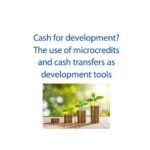Humanitarian emergencies frequently require a rapid response from the organisations responsible for providing assistance. In response to this, Caritas has implemented a capacity building programme on emergency preparedness and response, Phase II (ReCIP2) in Mali, which had the aim of improving the organisations’ response to emergencies. ECOPER recently completed its external evaluation of the intervention. The evaluation aimed to both analyse the results of the programme and, where possible, propose improvements which could be adopted for future efforts. It was conducted remotely owing to the COIVD- 19 pandemic, with interviews and surveys taking place online.
Social protection to reduce child labour
In the mica regions of Madagascar, an estimated 10,800 children as young as five years old work alongside their families to sort and extract mica, which results in poor education and health for children in these regions and perpetuates poverty across generations. ECOPER has been commissioned by UNICEF to elaborate an advocacy paper on ‘Investing …

